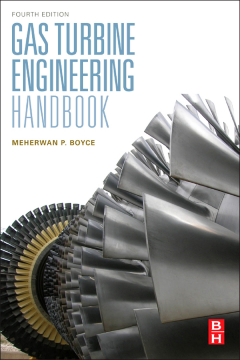
Additional Information
Book Details
Abstract
Written by one of the field’s most well known experts, the Gas Turbine Engineering Handbook has long been the standard for engineers involved in the design, selection, maintenance and operation of gas turbines. With far reaching, comprehensive coverage across a range of topics from design specifications to maintenance troubleshooting, this one-stop resource provides newcomers to the industry with all the essentials to learn and fill knowledge gaps, and established practicing gas turbine engineers with a reliable go-to reference. This new edition brings the Gas Turbine Engineering Handbook right up to date with new legislation and emerging topics to help the next generation of gas turbine professionals understand the underlying principles of gas turbine operation, the economic considerations and implications of operating these machines, and how they fit in with alternative methods of power generation.
- The most comprehensive one-stop source of information on industrial gas turbines, with vital background, maintenance information, legislative details and calculations combined in an essential all-in-one reference
- Written by an industry-leading consultant and trainer and suitable for use as a training companion or a reliable dip-in guide
- Includes hard-won information from industry experts in the form of case histories that offer practical trouble-shooting guidance and solutions
"Consultant mechanical engineer Boyce integrates developments in areas such as lubrication and controls for gas turbines during the four years since the previous edition of his textbook and reference. Applications have also expanded rapidly in such fields as petrochemicals, power generation, and offshore industries. The book could be used for graduate or undergraduate turbomachinery courses or in company training programs in the fields mentioned. It covers the theory and practice of design; major components; materials, fuel technology, and fuel systems; auxiliary components and accessories; and installation, operation, and maintenance." --Reference and Research News, October 2012
